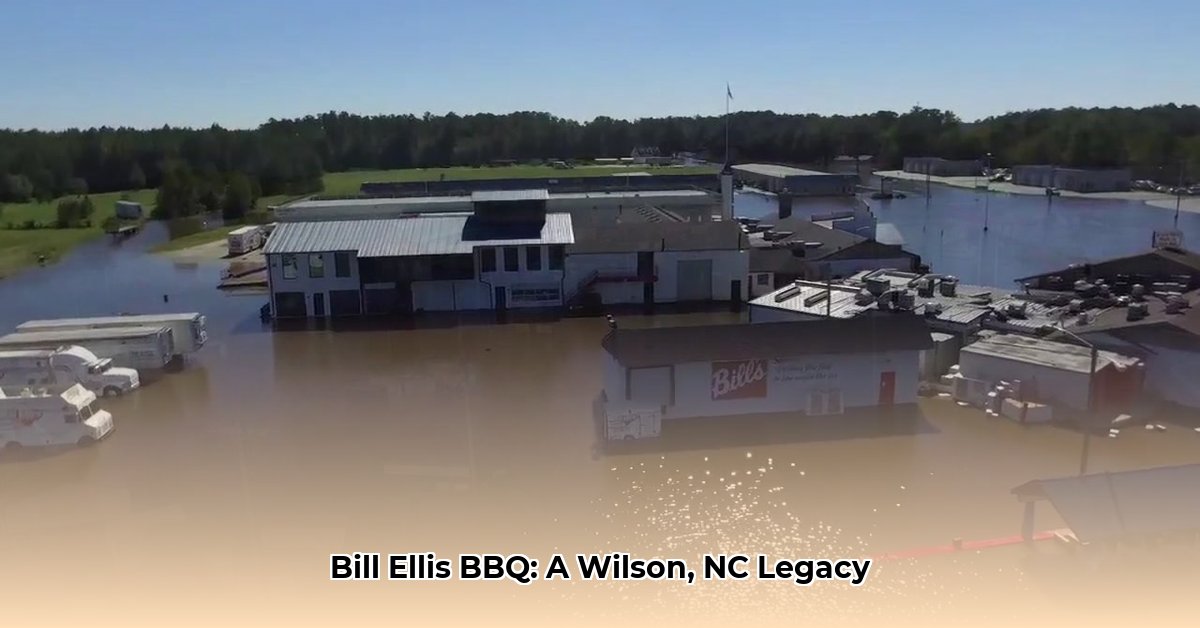
The tantalizing aroma of hickory-smoked barbecue, once a Wilson, North Carolina, staple, now exists only in memory. Bill Ellis Barbecue, a beloved institution for nearly 65 years, has closed its doors, leaving a void felt deeply throughout the community. This isn't simply a story of a restaurant's closure; it's a poignant case study illustrating the often-overlooked challenges faced by family-owned businesses striving for sustainability. This article explores the factors contributing to Bill Ellis BBQ's demise, examining succession planning, market adaptability, and the critical role of community engagement, offering vital lessons for similar establishments nationwide.
More Than Just Ribs: A Wilson Landmark
For decades, Bill Ellis wasn't just a pitmaster; he was a cornerstone of Wilson. His restaurant transcended a simple eatery; it was a community hub, a gathering place where generations celebrated, friends connected, and strangers forged bonds. The sprawling complex—multiple buildings, extensive seating, and a thriving catering service—testified to its success, a symbol inextricably woven into the town's identity. But could this remarkable prosperity, built upon the singular vision and dedication of one man, truly be sustained? This is the central question that Bill Ellis's legacy raises. Did the unique alchemy of Bill Ellis’s personality, his intimate knowledge of both the craft and the community, become inseparable from the restaurant's enduring success?
The Challenge of Succession: A Family's Burden
Following Bill Ellis's passing in 2017, the critical issue of succession surfaced. His wife's valiant efforts to continue the legacy proved ultimately unsustainable. Managing such a large operation without Bill's decades of experience, his intimate understanding of the business, and his profound connections within the community proved insurmountable. This underscores a pervasive challenge: the frequently underestimated importance of thorough succession planning in family-run ventures. It’s not simply about transferring recipes; it's about conveying the entire ethos of the business—culinary expertise and managerial acumen—ensuring a smooth transition of leadership. How can family businesses effectively transfer intangible assets like recipes, culture, and the community bonds built over generations?
Navigating Change: Sustainability in a Dynamic World
Bill Ellis Barbecue's closure serves as a stark reminder of the multifaceted factors affecting business longevity. While Bill's absence undoubtedly played a significant role, other elements likely contributed. Did evolving customer preferences, shifting economic conditions, or an insufficient transition plan play a role? The answer may lie in the intricate interplay of all these factors. Was the restaurant's success intrinsically linked to Bill Ellis himself, rendering replication a near impossibility?
The Sale and an Uncertain Future
The sale of the property to Cashcow Properties LLC, an out-of-state entity, further emphasizes the challenges facing locally owned businesses. This transaction highlights the sometimes disheartening reality of losing institutions deeply ingrained in a community's identity. Will the new owners preserve the history and character of this beloved establishment, or will Bill Ellis Barbecue’s legacy be erased completely, leaving only a vacant space where cherished memories once flourished? The future remains uncertain, a poignant testament to the vulnerability of local institutions.
Lessons Learned: Securing the Future of Family Businesses
The closure of Bill Ellis Barbecue offers valuable lessons. Succession planning isn't a luxury; it's a necessity. It requires more than simply passing down recipes; a comprehensive strategy is needed that incorporates detailed training programs, and mentorship opportunities to cultivate a new generation of leaders. Furthermore, adaptability is crucial. Family-run businesses must stay ahead of market trends, using data analytics and incorporating feedback, to maintain relevance. Finally, strong connections with the community are essential. Partnerships, community involvement, and cultivating a sense of belonging are vital for building enduring customer loyalty.
Key Steps for Sustainable Succession:
- Proactive Planning: Develop a detailed succession plan well in advance, mitigating potential issues.
- Open Communication: Foster open dialogue within the family, addressing expectations and concerns.
- Professional Guidance: Seek expert advice on legal, financial, and business matters.
- Mentorship Programs: Implement structured training and mentorship programs to transfer knowledge.
- Market Adaptation: Continuously monitor industry shifts and adjust strategies accordingly.
The narrative of Bill Ellis Barbecue isn't solely a tale of failure, but a vivid reminder of the persistent challenges for family-run enterprises. It emphasizes the need for foresight, adaptable strategies, and the cultivation of durable community ties. The lessons are clear: plan carefully, embrace change, and build lasting connections—that’s how a legacy truly endures. The memory of Bill Ellis BBQ and its delectable barbecue lives on, a powerful illustration of the importance of planning and adaptation in the ever-evolving landscape of family businesses.